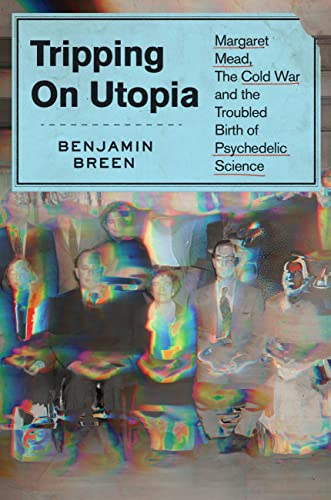Tripping on Utopia: Margaret Mead, the Cold War, and the Troubled Birth of Psychedelic Science by Benjamin Breen
Benjamin Breen. Grand Central, $30 (384p) ISBN 978-1-538-72237-4
Historian Breen (Age of Intoxication) blends fleet-footed biography with an accessible analysis of mid-20th-century research into “psychedelic” experiences as pioneered by anthropologist Margaret Mead, her husband and fellow anthropologist Gregory Bateson, and the Macy Foundation, a scientific group that became a CIA clearinghouse during the Cold War. Mead and Bateson first met in 1933, and in 1936 they conducted ethnographic research on trance states in Bali. That study led to Bateson’s top secret work during WWII on “hypnosis-assisted interrogations” of Japanese and German POWs for the Office of Strategic Services, the CIA’s precursor. The 1943 discovery of LSD in Zurich led to a postwar boom in research into mind-altering drugs, and during the first decades of the Cold War the CIA funded public LSD research through a program code-named MKULTRA, which was fronted by several Macy Foundation scientists. Breen chronicles the cultural impact these LSD trials had on the 1950s and ’60s, which was heightened by Mead’s sanctioning of LSD as a “cure for fear” at a time when she was arguably the best-known scientist in the world (due to her earlier paradigm-shifting ethnographic writing on sex in the South Pacific). Breen artfully weaves Mead’s biography with fascinating details of the sprawling psychedelics scene (producers of the TV show Flipper took acid). The result is a riveting exploration of a shadowy episode in 20th-century history. (Jan.)
Details
Reviewed on: 10/16/2023
Genre: Nonfiction



